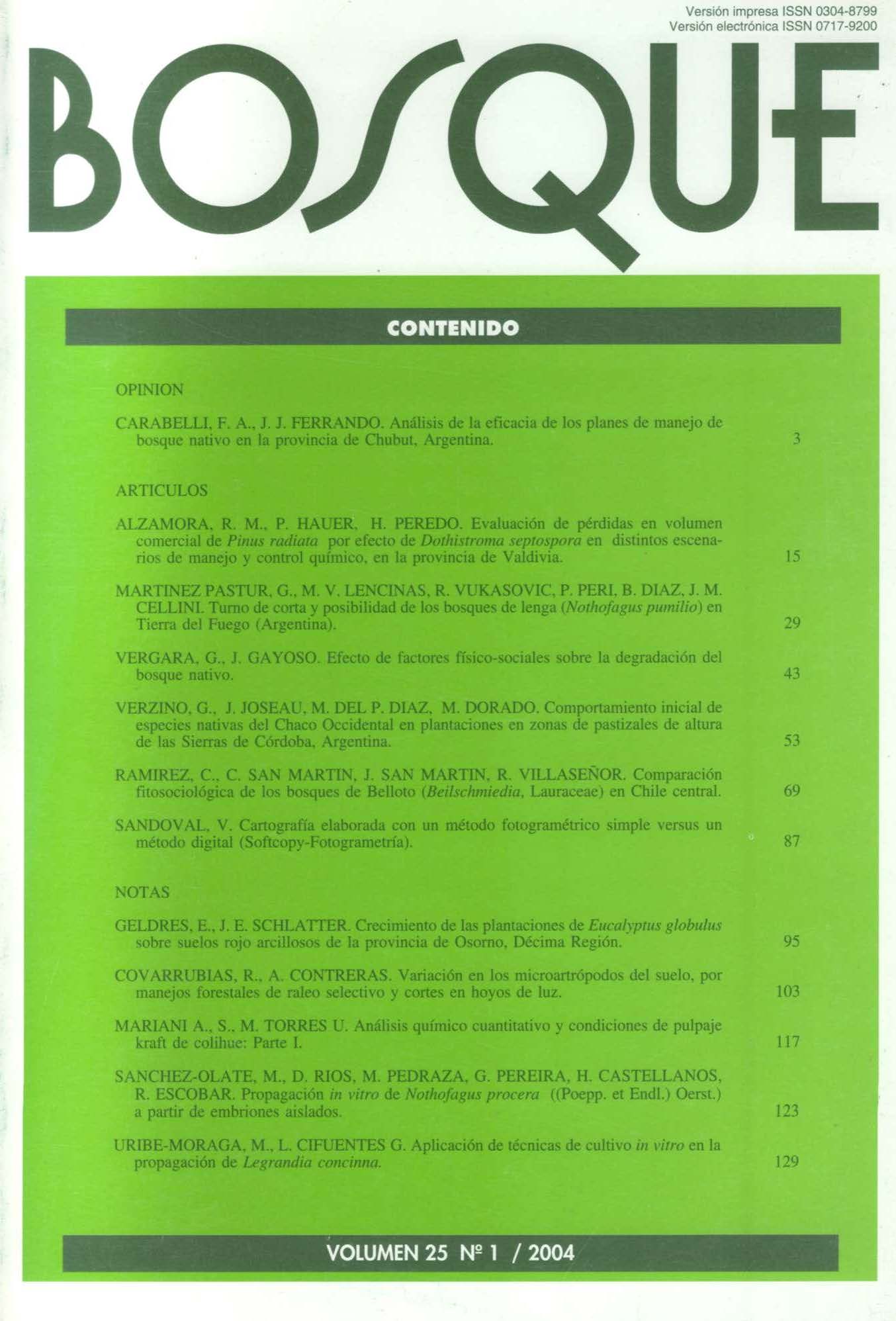Main Article Content
Apr 30, 2004
Abstract
The pulp mass capability of the Chilean bamboo, colihue (Chusquea culeou E. desv.), was analyzed. Culms (3 m long), which were free from branches and had diameters between 13 and 36 mm, were collected in farms from southern Chile (X Region) for this purpose. Chemical, pulp and black liquor analyses were carried out using Technical Association Pulp and Paper Industry (TAPPI) rules. Packs of culms were taken to industrial chippers that specialized in timber-yielding species. The chips were subjected to a kraft process, with a varied alkali charge and a permanence time at 170 °C. The rest of the pulp conditions were kept constant. A high content of total extractable chemicals, soluble in 1% soda and ash, had values that clearly exceeded those found in timber-yielding species. On the other hand, the content of holocellulose and lignin were similar to those of hardwood species. Colihue chips produced by the industrial chipper showed granulometry according to that permitted by kraft pulp. The active alkali charge inside ranged from 12% to 16% o.d. wood and showed screened yields between 42.4% and 47.5% o.d. wood. Rejections ranged from 1.7% and 8.9% o.d. wood, with kappa numbers between 8.8 and 18.8. The increment in the active alkali charges directly resulted in a decrease in rejection and an increase in delignification. Colihue submitted to the kraft process exhibited very good pulp characteristics.


